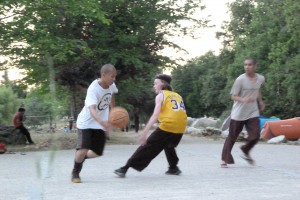To reach the Morris Educational Campus from downtown Manhattan, it’s an hour-long subway trip and then a twenty-minute walk through the ethnically mixed streets of the South Bronx. The pink Dunkin’ Donuts logo greets you as you exit the Intervale Avenue stop and Puerto Rican specialty shops color the rest of the way with their succulent dishes. These shops bear witness to why the South Bronx is described as a food desert, meaning it is an area that lacks access to affordable and nutritious foods. Residents do not have access produce or whole grains, which aggravates local malnutrition (including obesity) and related health concerns.
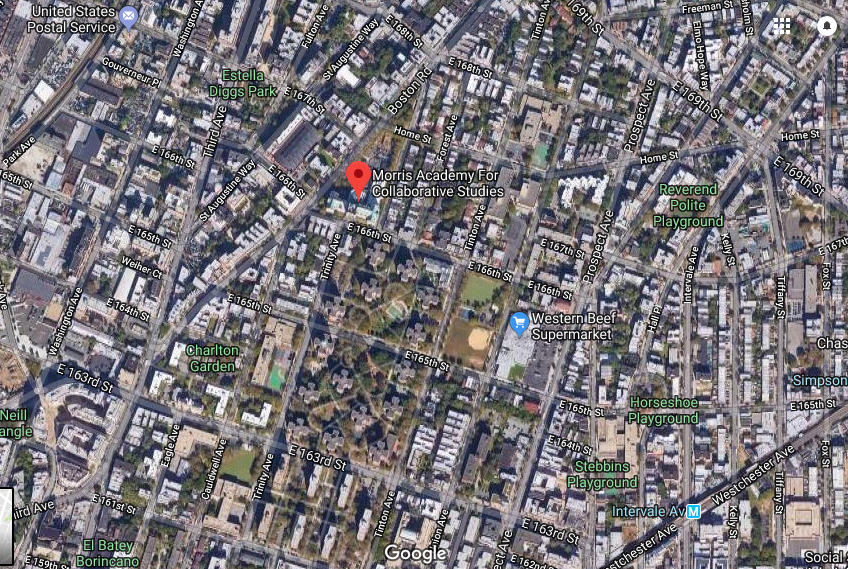
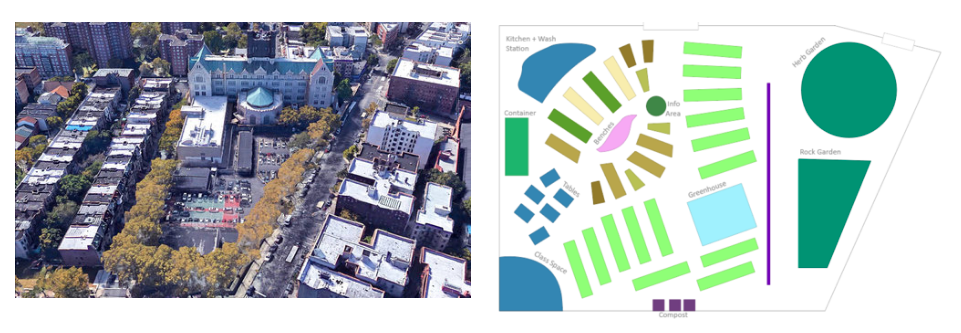
The South Bronx is a food desert, meaning it is an area that lacks access to affordable and nutritious foods.
Halfway to the school, sixteen high rise buildings dominate two large city blocks called Forest Houses. Google Maps instructs pedestrians to walk through the housing project as ‘the fastest route’, but locals advise sticking to the main streets to bypass the subsidized complex. Safety is a concern for most everyone. When students and teachers arrive at Morris, they begin each school day by passing through a metal detector. It’s like passing through airport security—before your 8 a.m. class—with all the other 1600 students.
The impressive school building dates back to the 19th century and is listed New York City’s Landmarks Preservation Commission, but it’s location indicates some of the challenges faced by the school community. Morrisania, the school’s neighborhood, is one of the poorest school districts in the US. One third of the school live in temporary housing or shelters. It hosts Bronx International, a school for those who have been in the US for less than four years. One teacher shared that their student body speaks over 50 languages! Few schools in the world have as complex a learning environment as Morris.
Few schools in the world have as complex a learning environment as Morris Educational Campus.
How can a high school meet the needs of such a multi-faceted student body? The Morris Educational Campus now boasts four, diverse schools: of ‘Bronx International High School’, ‘Morris Academy for Collaborative Studies’, ‘High School for Excellence’ and ‘High School for Violin and Dance’. The associated high schools used to be a single school which saw the future US Secretary of State Colin Powell graduate with the class of 1954. His Jamaican roots are shared by many of the current students. He openly admits to having struggled in school from his early years through college, despite the extraordinary talents he went on to develop. Why was the gifted child of immigrants ushered into the army? Perhaps it’s because military careers remain one of the easiest ways for the poor to climb the social ladder and to acquire vocational skills.
Administrators, teachers, students and community activists looked into a creative alternative to help students feel empowered and safely rooted in their community. They envisioned a collaborative effort by students from all four Morris schools to mindfully build an urban farm. In March 2017, thirty students built the 25 raised garden beds in 14,000 square feet (1300 m2) of an underutilized parking lot. The Morris Campus Farm gives them hands on experience, provides them and their community with fresh produce, offers them a space to connect with each other and the environment and to practice mindfulness as they integrate social, emotional and academic skills.
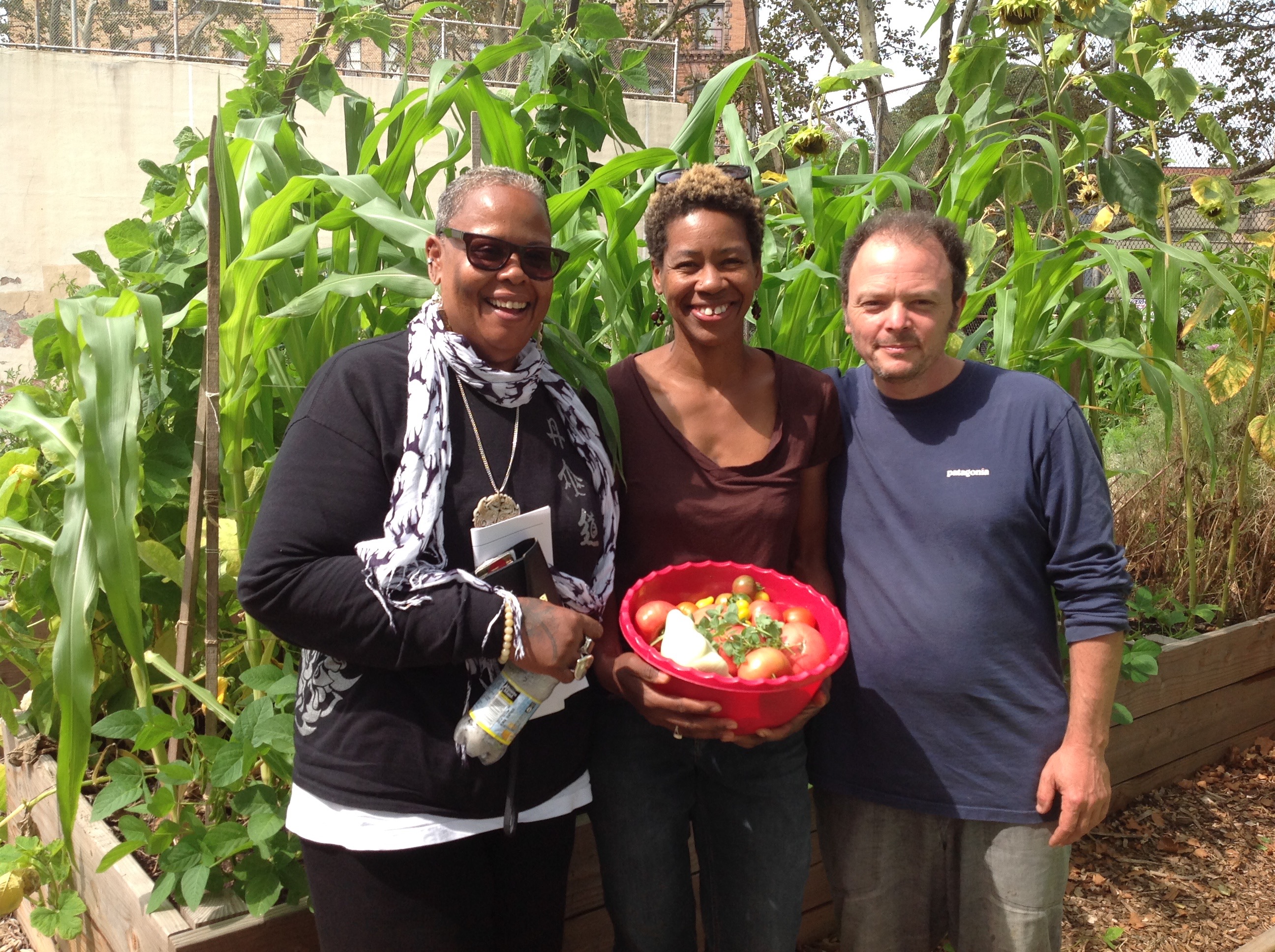
Carmen Bardeguez-Brown and Josh Sarantitis spearheaded this mindfully designed urban farm. They met at Blue Cliff Monastery in New York state and discovered that they shared both a mindfulness practice in common and an aspiration to create a safe haven for inner city students. Carmen is a poet and former principal of the Morris School for Excellence; the Morris Campus Farm allows her to continue serving her school community as she transitions out of administration. Josh, an artist who has collaborated with inner city school communities for years, saw prospects of a ‘Happy Farm’ like the ones developed in Plum Village. Mayfield Brooks manages the farm and her background in urban food justice, dance and yoga deeply informs her work. The experiment’s early success facilitated the creation of summer internships for Morris students, allowing 18 teenagers to receive stipends as they learn about caring for plants, themselves and their relationships.
The Morris Campus Farm’s early success facilitated the creation of summer internships for Morris students, allowing 18 teenagers to receive stipends as they learn about caring for plants, themselves and their relationships.
Morris Campus Farm has also received hands-on support from the New York Botanical Gardens with tools, soil, compost and kale starts. There is an aspiration to set up a scholarship fund through which graduates of the Morris Campus Farm program could attend retreats at Plum Village practice centers and eventually continue their experience together with our Happy Farm volunteers. For more information, you can reach out to info@wakeupschools.org.
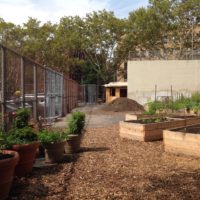
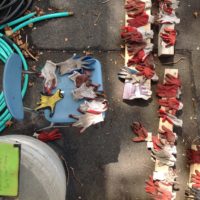
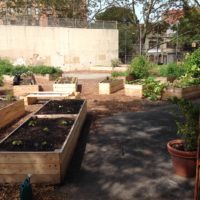
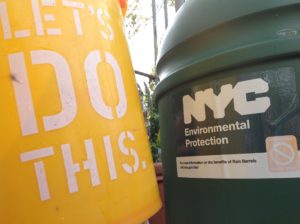
Upcoming Morris Campus Farm Event
Join in on the Morris Campus Farm Celebration! It’s taking place on Friday, May 26, 2017 from 10 am to 1 pm. Please rsvp: morriscampusfarm@gmail.com.

